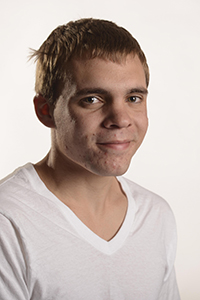Opinion: At inauguration, still a need for idealism

January 22, 2013
Daniel Moore
Daniel Moore is a senior news major and White House correspondent for the Daily Kent Stater. Contact him at [email protected].
WASHINGTON — Some pundits said it would be a little less idealistic this time around. The second inaugural, after all, is about sticking to the agenda that voters reaffirmed when they granted a second term.
But the ideas that have built Barack Obama’s presidency were more recognizable and resonating than ever among the multicolored sea of 1 million people stretching the length of the National Mall. And although this isn’t the “hope and change” of 2008, I realized they are exactly what the country needs to move forward.
As the sun rose over the dome of the Capitol, I watched from the western lawn as the distinguished guests arrived in a specific order of importance. From congressmen to senators to former presidents to Cabinet members — all the way up to Sasha, Malia, Michelle and, finally, the man of the hour — each person brought with them a different ideal. Each had a personal agenda, a different praise or a gripe about simply having to be there. They formed their own sea on a platform high above the people. And as Obama unveiled his concepts of sweeping liberal change in eloquent poetry, I, along with many Americans, knew they were ideologically split down the middle.
His address centered on the same abstract concepts of unity, equality and compromise. He spoke ill of those who perpetuate “centuries-long debate about the role of government for all time,” those who “mistake absolutism for principle, substitute spectacle for politics, or treat name-calling as reasoned debate.”
But he also made some concrete vows. Obama’s was the first speech to promise a fight for gay rights, while he invoked images of Seneca Falls, Selma and Stonewall. He defended social safety nets in the face of a rising deficit. He cited wildfires, droughts and devastating storms as evidence of climate change.
Part of me had wanted to see more of this. But the truth behind Obama’s stressing of unity really hit me as I stood near the sea of legislators, as I rode the current of people back to the Metro. And as the president himself was exiting the platform, it hit him too. Reportedly, he turned around and stopped, gazing out onto the Mall and soaking it all in.
“I want to take a look, one more time. I’m not going to see this again,” he said to no one in particular.
This kind of impromptu introspection is quintessential Obama. He begins this term humbled; as he would say later, the “irony” of being president is “the longer you are there, the more humble you become.” During the address, he had referred to his oath as “not so different” from the oath of a solider or an immigrant or the American citizen.
This connection, though forged through lofty rhetoric, will be very important going forward on domestic issues of a fiscal cliff and gun violence and foreign fears of a new brand of terrorism in North Africa. No, this isn’t the “hope and change” campaign of 2008, and Obama knows that. It’s the American people that need to understand that.
In his pomp and circumstance and “yes we can” metaphors, Obama delivered a speech that actually had more tangible relevance to our country’s struggles than I thought. Maybe it was the power standing in the shadow of Congress, but I believed in action when the president said, “We must act, knowing that our work will be imperfect. We must act, knowing that today’s victories will be only partial … My fellow Americans, we are made for this moment, and we will seize it – so long as we seize it together.”











